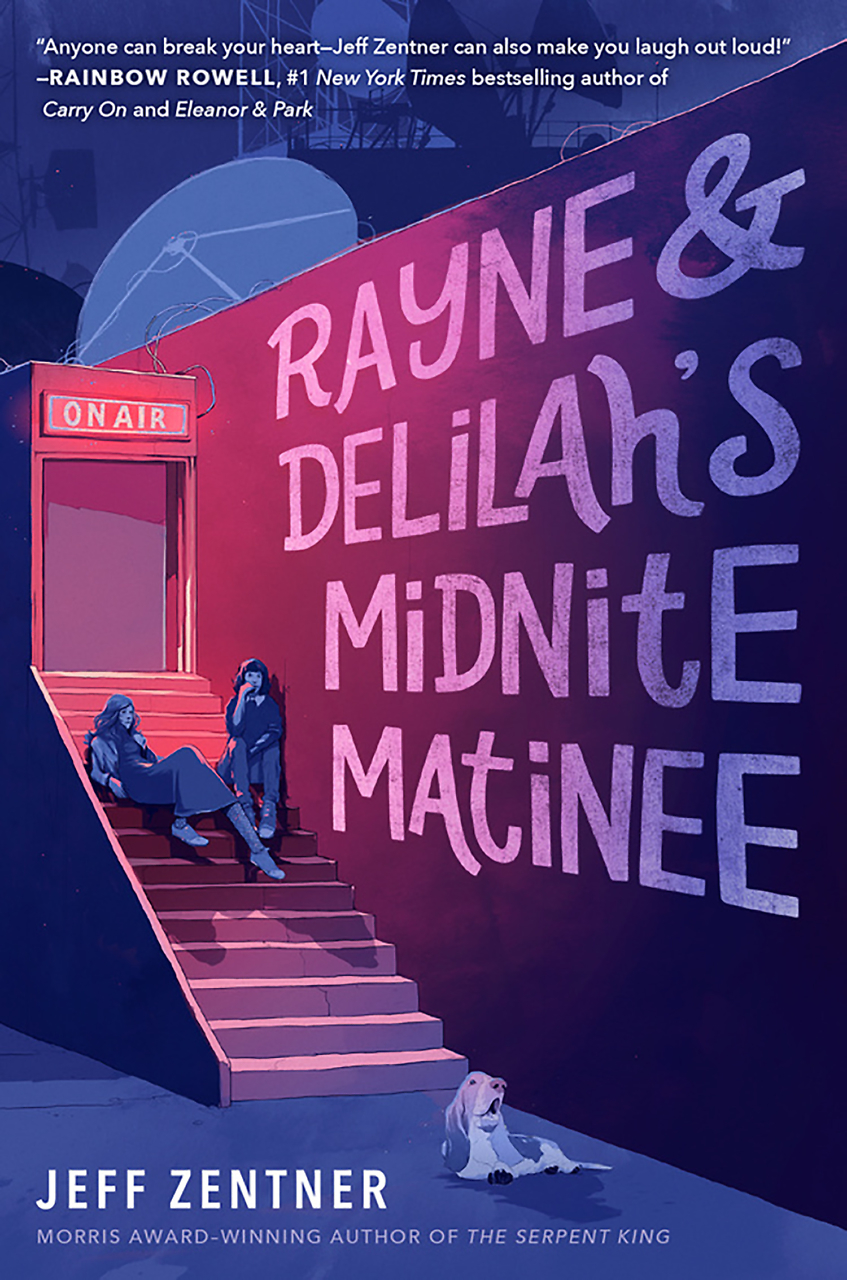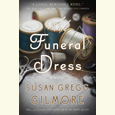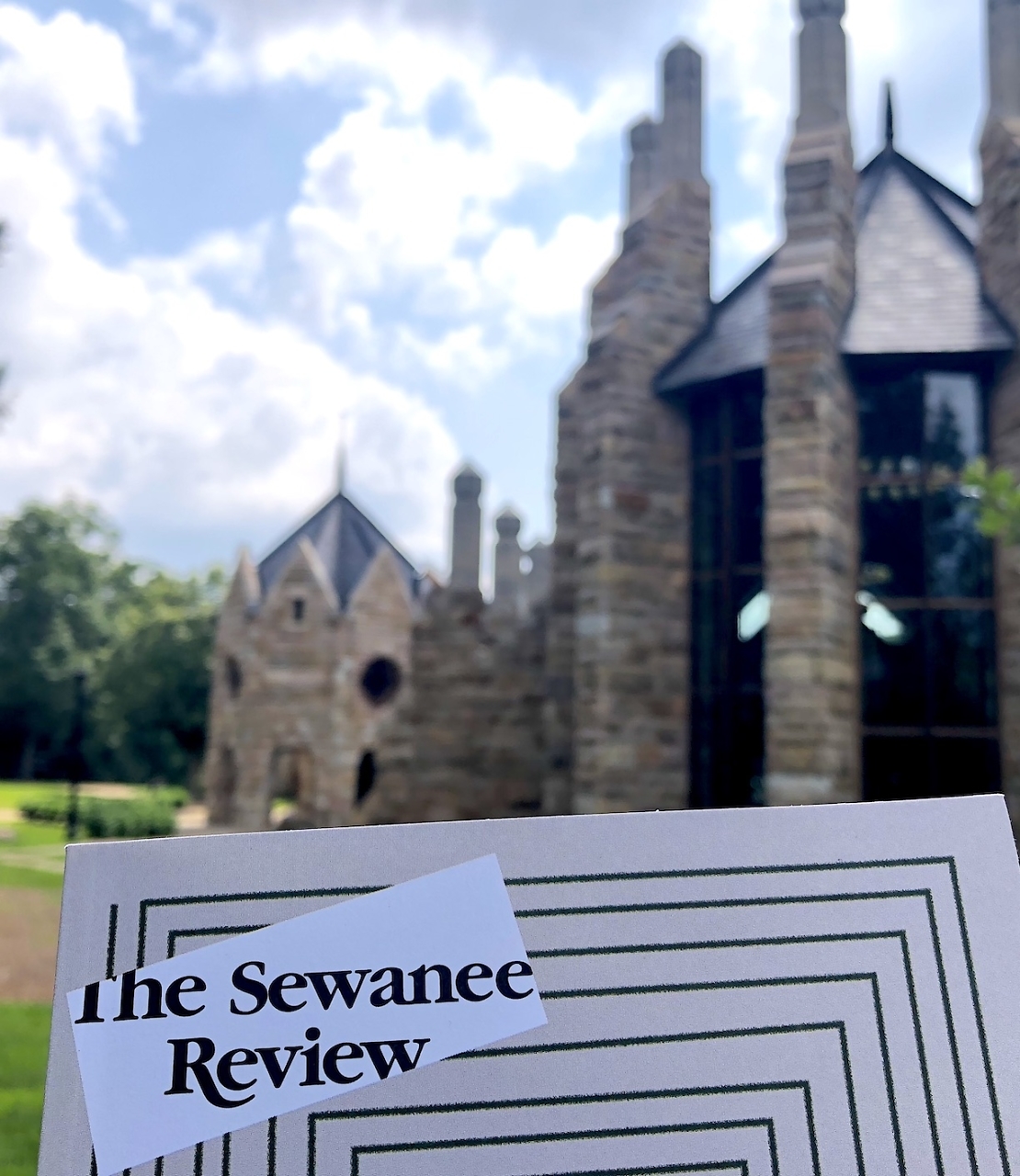A Vessel for the Story
Alice Faye Duncan’s books chronicle Black perseverance, past and present
FROM THE CHAPTER 16 ARCHIVE: This article originally appeared on January 4, 2022.
***
Alice Faye Duncan believes that, for authors, the stories they seek also seek them. Her new nonfiction books for young readers are no exception. Evicted!: The Struggle for the Right to Vote and Opal Lee and What It Means to Be Free are lively and informative additions to the books about Black history Duncan has previously written, stories she describes as neglected moments in American history.

Evicted! captures the struggles of Black residents in Fayette County, Tennessee, in the 1960s — a community of “unmerited suffering,” Duncan writes, known as Tent City. Black citizens who had long been prohibited from voting participated in voter registration drives organized by farmers John McFerren and Harpman Jameson. As a result, the White Citizens Council, a segregationist group, forced the Black sharecroppers off their land and into tents. As a form of punishment, they also denied these families medicine, insurance policies, and goods and services. This struggle caught the attention of the nation and resulted in the historic Voting Rights Act of 1965.
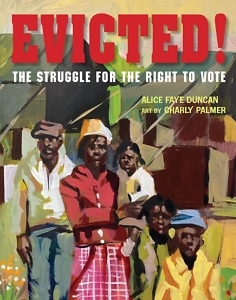 The book opens with illustrated profiles of the movement’s key players — Duncan calls artist Charly Palmer’s illustrations for the book “wondrous” — and continues with detailed vignettes in words and art of those who fought to obtain voting rights. Duncan’s work in Memphis as a school librarian, one who knows the curricular gaps, guided her. “Nobody in even Fayette County — not a child! — knows that story,” she exclaimed. “No kid in Memphis understands that story. No kid in East Tennessee understands the weight of that movement and how it is the one movement that influenced young college kids, like John Lewis and the young Freedom Riders. That movement influenced them to go into the rural areas of the South and initiate a voters’ registration drive. What they were doing was extraordinary. They were sacrificing their comfort for the right to vote.”
The book opens with illustrated profiles of the movement’s key players — Duncan calls artist Charly Palmer’s illustrations for the book “wondrous” — and continues with detailed vignettes in words and art of those who fought to obtain voting rights. Duncan’s work in Memphis as a school librarian, one who knows the curricular gaps, guided her. “Nobody in even Fayette County — not a child! — knows that story,” she exclaimed. “No kid in Memphis understands that story. No kid in East Tennessee understands the weight of that movement and how it is the one movement that influenced young college kids, like John Lewis and the young Freedom Riders. That movement influenced them to go into the rural areas of the South and initiate a voters’ registration drive. What they were doing was extraordinary. They were sacrificing their comfort for the right to vote.”
During her research, Duncan was moved to discover that her family, in multiple ways, is connected to the story of Tent City. “I know these people,” she said. “I feel like I’ve been chosen to share these Memphis and Tennessee histories that are so unexplored.”
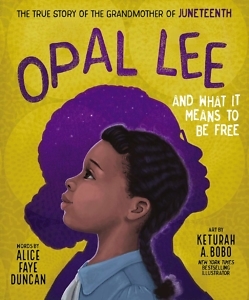 In fact, the spark for the story came at a 2006 funeral where she spotted Ernest Withers, a “fixture in my Memphis community” and the photographer who chronicled the Tent City Movement. Withers gave Duncan a collection of his celebrated civil rights photographs. “He set me on this journey,” Duncan explains. “I see in this book pictures of the Black farmers and their children. That’s when I learned about Tent City. I had never heard of it before. That’s the dead speaking.” Withers took the photos so that Black media across the country could know the plight of these sharecroppers. “He advanced the cause of those farmers, without a shadow of a doubt. His photographs helped spread the word across the nation that these farmers need your help.”
In fact, the spark for the story came at a 2006 funeral where she spotted Ernest Withers, a “fixture in my Memphis community” and the photographer who chronicled the Tent City Movement. Withers gave Duncan a collection of his celebrated civil rights photographs. “He set me on this journey,” Duncan explains. “I see in this book pictures of the Black farmers and their children. That’s when I learned about Tent City. I had never heard of it before. That’s the dead speaking.” Withers took the photos so that Black media across the country could know the plight of these sharecroppers. “He advanced the cause of those farmers, without a shadow of a doubt. His photographs helped spread the word across the nation that these farmers need your help.”
Duncan’s biography of teacher and activist Opal Lee, illustrated by Keturah A. Bobo, tells the story of Lee’s childhood in Texas, as well as her remembrances of her Granddaddy Zack’s “freedom stories.” Duncan had the unique opportunity to speak via phone to Lee, the woman who campaigned tirelessly to make Juneteenth a holiday, walking at the age of 89 from Texas to D.C. to bring attention to her cause.
“She made it very clear to me,” Duncan explained, “that she wanted people to understand that Juneteenth is not a ‘Black holiday.’ Juneteenth is a holiday that represents the idea that no one is free until everyone is free. There are liberation movements all over the world, and sometimes they are not Black and white. Liberation has no race. It has no particular religion. It should belong to all children, everywhere. What the Opal Lee book does is show how one person with one voice can change a situation for good.”
Duncan has strong feelings about recent attempts across the U.S. to ban books that address racism. “I hope,” she said, “there will be a moment where those who are perpetuating this will understand that they are not proponents against critical race theory. They are proponents against critical thinking and democracy. I hope they will have a come-to-Jesus understanding that their behaviors are so unwise, and it is putting all children, including their own, in critical danger.”
In the meantime, Duncan keeps herself open to the arrival of new stories.
“Stories are organic,” she says. “They have life and memory, and they are looking for a body. Each time when I look at these stories that are, as my friend says, on the edge of ruin, undiscovered, unexplored, I can’t help but think about how the dead speak. There’s a whole African idea that the past, the present, and the future are actually simultaneous, that there’s no division, that we are all here together.”

Julie Danielson, co-author of Wild Things! Acts of Mischief in Children’s Literature, writes about picture books for Kirkus Reviews, BookPage, and The Horn Book. She lives in Murfreesboro and blogs at Seven Impossible Things Before Breakfast.
